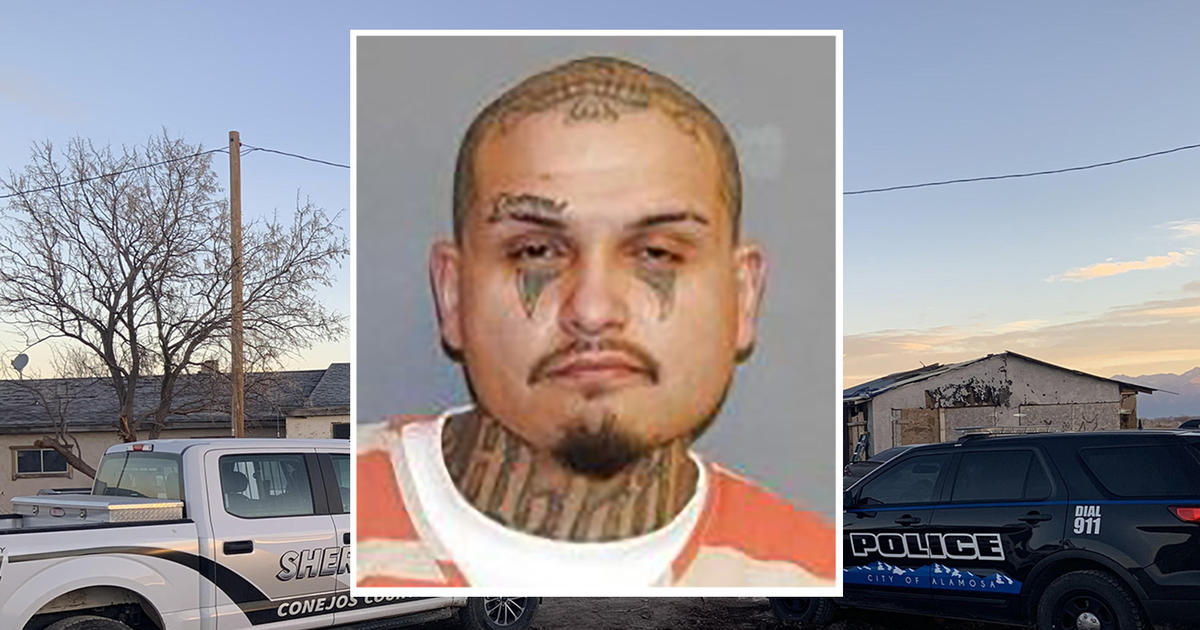Colorado Pot Bill Seeks Caregiver Database
DENVER (AP) -- A marijuana law passed in Colorado last year puts patients under video surveillance and gives dispensaries a raft of new rules aimed at tracking pot as soon as it's planted. Now state lawmakers are talking about shining a light on thousands of small-time caregivers who police say can be hard to distinguish from basement drug dealers.
A bill pending in the state Legislature would create a database of an estimated 40,000 people designated as marijuana caregivers for state medical marijuana patients. Caregivers are limited to five patients but otherwise have little oversight. Colorado requires caregivers to grow pot outside public view, but caregivers don't have the kind of security and reporting requirements of commercial pot growers.
This year's measure requires that caregivers now register with the state, with their information public and accessible to police. Caregivers would have to state where the pot is being grown and follow local zoning laws. Marijuana patients growing only for themselves could still have up to six plants with no registration requirements.
Sponsors call a caregiver registry a simple tracking necessity to keep pot off the black market. Law enforcement groups say a public database is needed to distinguish and protect lawful pot growers. But some marijuana activists fear caregiver tracking could open to door to police harassment, and make growers susceptible to crime.
It's a serious worry for Timothy Tipton, a Denver resident who has worked as a caregiver for nine years in several Colorado towns. Tipton's roommate once testified about pot plants in their home at a local board of health meeting, and his home was burglarized and the plants stolen after Tipton's address was published online.
And just last month, Tipton said, plainclothes police officers surrounded one of his patient's homes after the patient's ex-girlfriend told police he was growing pot. A five-hour search of the home revealed nothing, and the patient wasn't charged, but Tipton says the patient was harassed. Tipton fears any registry that would help police know where medical marijuana is being grown, even legally.
"Call me paranoid, but do you want big government in your medicine cabinet? I don't," Tipton said.
Other pot activists say marijuana users often fear that medical marijuana laws could be repealed, so they're nervous about telling police where the plants are. Colorado's constitution was changed in 2000 to allow medical marijuana, but pot activists say suspicion remains.
"If this passes, the state will know the location of every plant that it deems to be legal, other than patients' own plants -- even if you're just growing for a spouse or partner. It's a gross expansion of power," said Robert Chase, founder of the Colorado Coalition of Caregivers & Patients. Chase says the bill amounts to government meddling in patients' constitutional right to medical marijuana.
Police insist they need a better way to verify legitimate caregivers.
Currently, police trying to verify a caregiving claim must fax or deliver copies of patient cards to the state health department. Privacy rules prohibit health authorities from telling officers in advance whether a certain person is listed as a caregiver, and for how many patients.
For drug busts happening outside business hours, officers must wait until the health department reopens. Verification is time-consuming; it's done one patient at a time, said Ron Hyman, director of the health department's medical marijuana registry.
The bill sets up an electronic database accessible around the clock, making it easier for planned stings and for officers who, for example, need to check whether someone driving with pot plants in the backseat has permission for the plants.
Sgt. Jim Gerhardt of the North Metro Drug Task Force says last year's five-patient limit has helped, but doesn't solve the problem.
"People are in violation of this thing all over the place," Gerhardt said. "They may have one or two patients, but they have 500 plants in their home."
The sponsor of the bill says lax caregiver oversight allows illegal drug growers to simply claim to be growing and selling pot for legitimate patients.
"If you want to exclude yourself from oversight, you just call yourself a caregiver and go from there," said Republican Rep. Tom Massey.
Tipton claims that large-scale marijuana firms that support the bill want to drive home-based caregivers out of business.
"It's another attempt at backdoor lobbying by corporate interests," Tipton argued. "There's a limited minority of individuals who would like to see only commercial growing in this state."
Warren Edson, a Denver lawyer who represents marijuana patients, basement growers and large businesses, said the state could drive growers to either become large operators or go underground.
"I think what we're seeing is the state push this business to a very formal licensed business, like liquor or a manufacturing business," Edson said. "If you are kind of a rational businessman, you're sitting there, 'Hmm, I cannot really go through all this regulation. Geez, maybe I should just go back into the black market, sell to the 40 or 50 people I used to sell to and just hide out."'
Massey insists that regulating caregivers, and allowing law enforcement to verify records, won't hurt legitimate caregivers, only those trying to hide.
"It's not meant to put Big Brother in your house," Massey said. "We went a long way last year toward giving them some legitimacy, and this is the next step."
- By Kristen Wyatt, AP Writer
(Copyright 2011 by The Associated Press. All Rights Reserved.)



